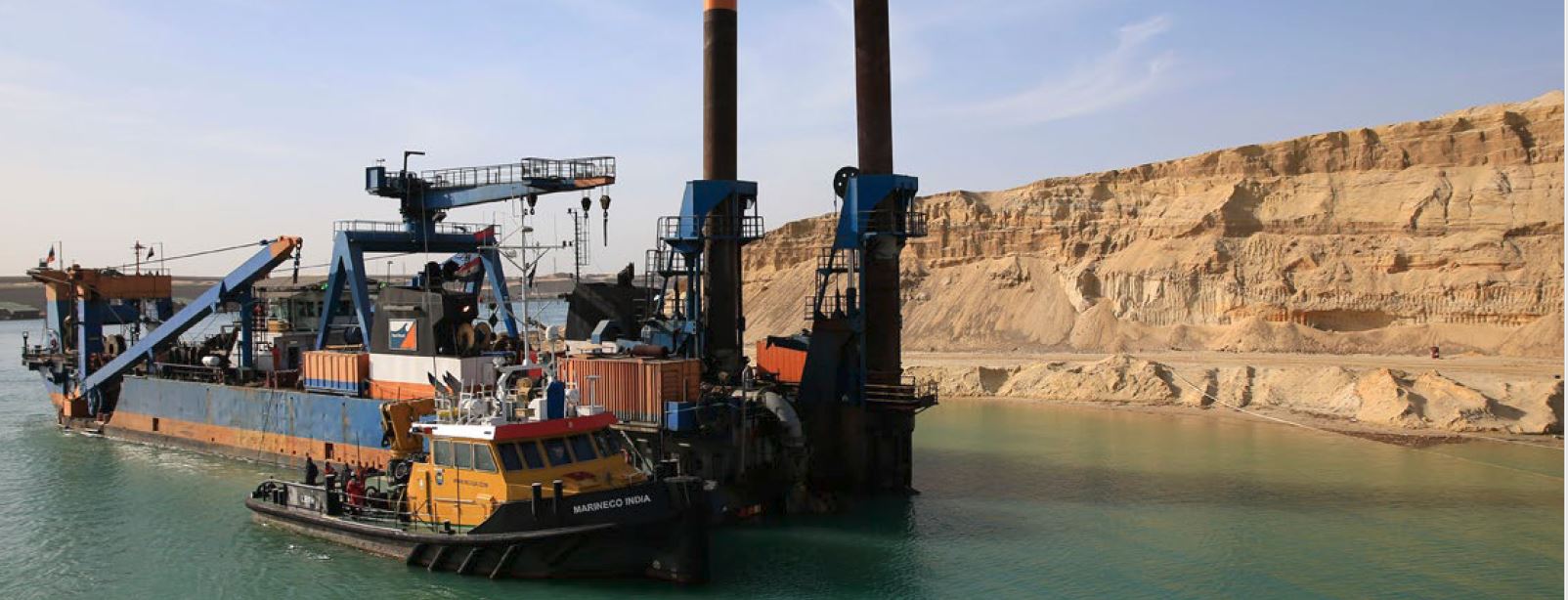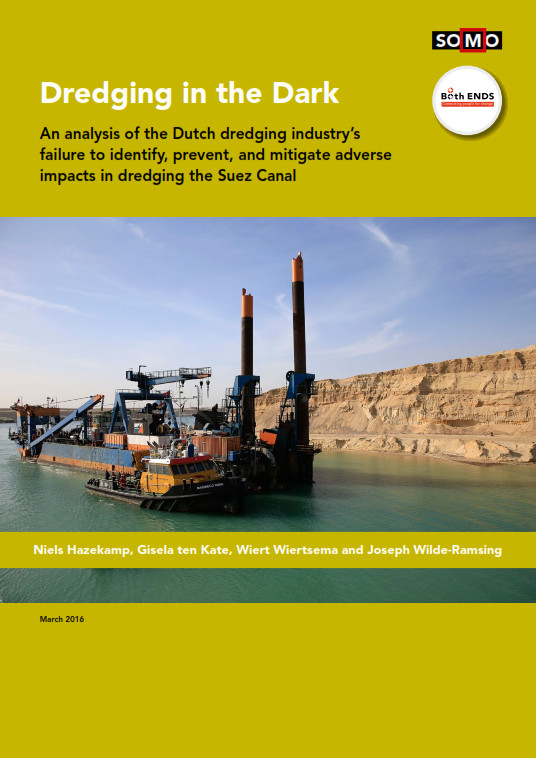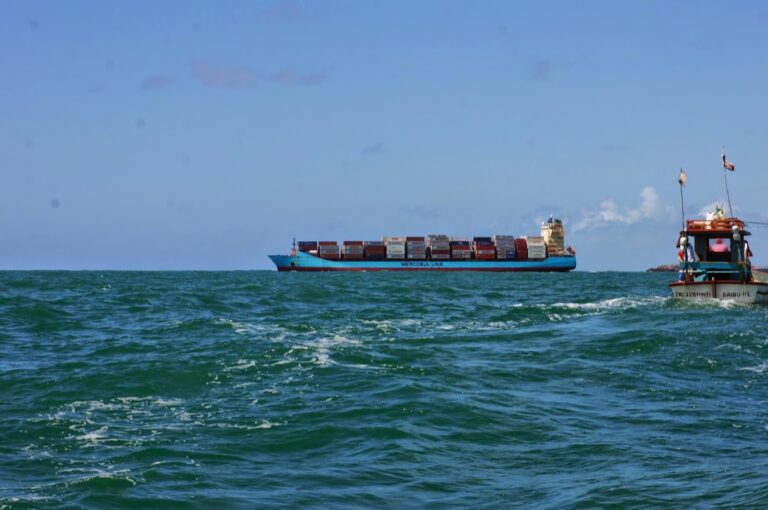
Dutch dredgers ignore human rights in Suez Canal expansion
The Dutch government and the Dutch dredging companies involved in the Suez Canal expansion failed to consider the adverse impact of their activities would have on both human rights and the environment. These are the findings of SOMO and Both ENDS in their research report ‘Dredging in the Dark’.
Four companies worked day and night to dredge 200 million m3 of sand in a record-breaking time of nine months, which negatively affected local residents. Financial risks were covered by the Dutch export credit insurance company Atradius DSB, on behalf of the Dutch Ministry of Finance.
Results March 2016:
Following the publication of the report, Jan Vos and Michiel Servaes (Labour Party) addressed parliamentary questions(opens in new window)
(Dutch only) to the Dutch Minister for Foreign Trade and Development Cooperation, Lilianne Ploumen. The topic has also been added to the agenda(opens in new window)
(Dutch only) of a parliamentary debate on economic missions and export promotion.
Forced evictions
On 5 August 2014, Egyptian President el-Sisi announced that the Suez Canal was going to be widened and deepened in order to accommodate larger ships. And this needed to be done quickly: el-Sisi wanted the canal project finished within a year. Two months later, a contract for the dredging operations was awarded to an international dredging consortium led by Boskalis and Van Oord. Dredging began almost immediately. No time was set aside to study the possibly adverse social and environmental impacts, despite the fact that international media sources had already revealed that two towns with a total of 1,500 homes had been destroyed and 500 families had been ordered to leave by the Egyptian army to make way for the expanded canal.
Dredging companies failed to uphold international standards
While these adverse human rights impacts were not directly caused by the dredging companies themselves, the companies should have taken responsibility for them. According to internationally accepted standards, such as the OECD Guidelines for Multinational Enterprises for responsible business conduct, the companies should have meaningfully consulted the families who were forced to move, to listen to their views and inform them of their rights. The companies should also have insisted that their business partner – the Suez Canal Authority – mitigate the negative impacts and compensate the victims. The report concludes that none of these steps were taken.
Dredging companies can use their influence to prevent adverse human rights impacts, which they should have done in this case. SOMO Researcher Gisela ten Kate:
“Dutch dredgers Van Oord and Boskalis, alongside two Belgian rivals, dominate the international dredging market. This gives them considerable leverage to prevent and mitigate adverse social and environmental impacts linked to their dredging operations. The dredging industry is characterized by tight deadlines and high pressure to win contracts and keep the capital-intensive dredging fleets occupied, but this does not excuse dredging companies from their responsibility to respect human rights and avoid adverse impacts.”
Dutch government sends the wrong signals
The dredging companies were not the only ones that failed to uphold international standards. The Dutch government also acted contrary to the OECD Guidelines by providing export credit insurance for a project without a social and environmental impact assessment. Wiert Wiertsema, senior policy officer at Both ENDS:
“Normally, this kind of study would reveal what the risks to people and the environment are so that these risks can be avoided and minimised. Because Belgium had already approved the Belgian dredgers’ request, the Dutch Ministry of Finance decided to approve the application before the risks had been sufficiently investigated and assessed.”
Protect and respect human rights
Both ENDS and SOMO are calling on dredging companies and the Dutch government not to let human rights be pushed aside by commercial interests. Both parties should have made a greater effort to identify the adverse impacts of the Suez project and done more to avoid and mitigate them. It is essential that for future projects the international standards for responsible business conduct are complied with. A sector-wide approach in which (local) stakeholders are involved, and binding agreements on the prevention of environmental and human rights impacts are made, can help.
You can find the report and summary here.
Do you need more information?
-

Gisela ten Kate
Coordinator MVO Platform
Partners
Related content
-
Dredging in the Dark Published on:
 Joseph Wilde-RamsingPosted in category:Publication
Joseph Wilde-RamsingPosted in category:Publication Joseph Wilde-Ramsing
Joseph Wilde-Ramsing
-
 Brazilian NGOs and communities receive training on human rights and complaints mechanismsPosted in category:NewsPublished on:
Brazilian NGOs and communities receive training on human rights and complaints mechanismsPosted in category:NewsPublished on: -
 The power to extract value from the value chainPosted in category:Long read
The power to extract value from the value chainPosted in category:Long read Rodrigo FernandezPublished on:
Rodrigo FernandezPublished on:

